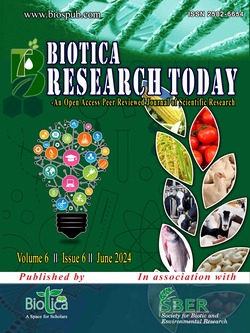
Role of Food Engineering in Formulation of Texture-Modified Foods
Piyusha Mahendra Matondkar*
Division of Agricultural Engineering (Process and Food Engineering), ICAR-Indian Agricultural Research Institute, New Delhi (110 012), India
Kritanjal Goswami
Division of Agricultural Engineering (Process and Food Engineering), ICAR-Indian Agricultural Research Institute, New Delhi (110 012), India
DOI: NIL
Keywords: Consumer acceptance, Food engineering, Nutrition, Texture-modified foods
Abstract
Texture-modified foods (TMFs) are specially designed for individuals with chewing or swallowing difficulties, such as the elderly and those with dysphagia. This article explores the engineering principles and techniques involved in the formulation of TMFs, focusing on rheology, mechanical testing and thermal processing. Advanced technologies like 3D food printing and high-pressure processing are highlighted for their role in creating safe, nutritious and palatable TMFs. The study underscores the importance of sensory evaluation, nutritional adequacy and consumer acceptance in the development of TMFs, aiming to improve the quality of life for affected populations.
Downloads
not found
Reference
Aguilera, J.M., Park, D.J., 2016. Texture-modified foods for the elderly: Status, technology and opportunities. Trends in Food Science & Technology 57(Part A), 156-164. DOI: https://doi.org/10.1016/j.tifs.2016.10.001.
Anonymous, 2023. Texture modified food and meals that are wholesome, nutritious, and versatile. In: Textured Concept Foods. Available at https://texturedconceptfoods.com. Accessed on: 16th June, 2024.
Kampuse, S., Ozola, L., Kruma, Z., Klava, D., Galoburda, R., Straumite, E., Siksna, I., 2022. Nutritional composition of plant-based texture: Modified foods for dysphagia patients. Proceedings of the Latvian Academy of Sciences. Section B. Natural, Exact and Applied Sciences 76(1), 22-29. DOI: https://doi.org/10.2478/prolas-2022-0004.
Wang, I.C., 2020. International classification systems for texture-modified foods. Journal of Nursing (Hu li Za hi) 67(4), 24-32. DOI: https://doi.org/10.6224/JN.202008_67(4).04.
